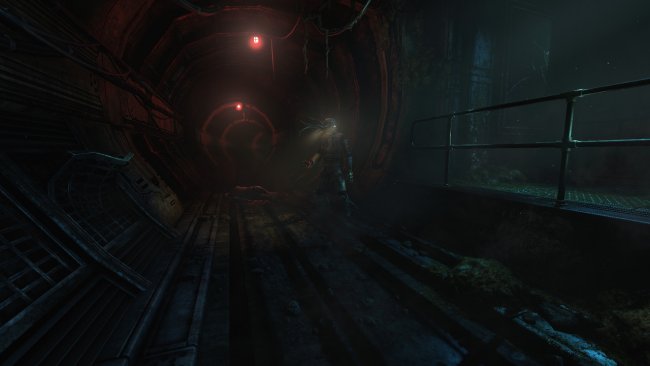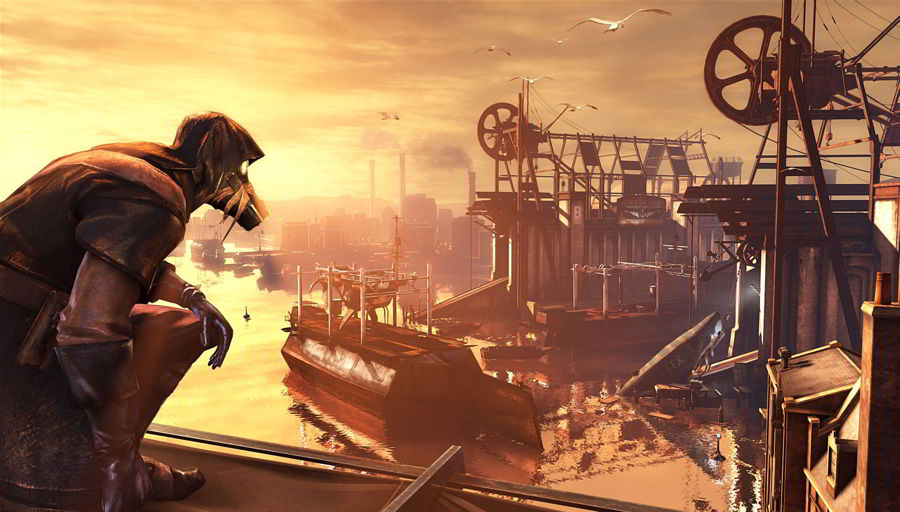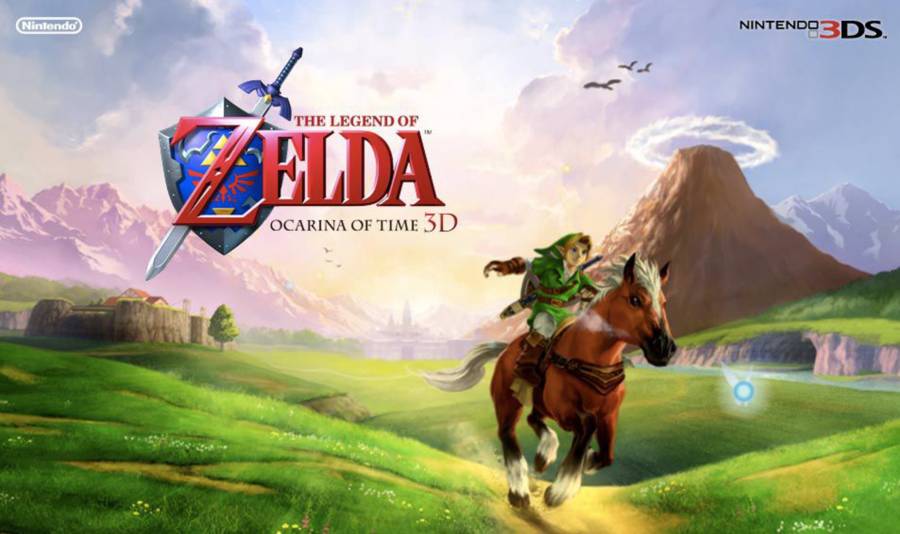

We met up with Frictional Games' Jens Nilsson at Game Camp Sweden (more on the initiative here) where he serves as a mentor to one of the student teams to talk about that project and the next game from the Amnesia studio - Soma. The studio has grown from just 5 people at the end of Amnesia's production to 15 people at the current count. Scaling with the size of the current project.
Speaking about Microsoft's Game Camp initiative Nilsson said: "I was surprised that there were this many atmosphere type of games, story-driven games. And also I think for Frictional Games, we started out as a student company... in 2006. So I think we have the sort of experience when you have an idea, you have a short period of time, but you've got a great opportunity to do a project you want and then get the basics done. And then, of course you have the big, huge step to take it to the next level, but at least you get that start where you can concentrate on the game."
After first creating the Penumbra trilogy of horror games, Frictional hit the big-time with Amnesia: The Dark Descent in 2010. So much so in fact that they had enough money to finance two projects, but as the team was fully focussed on Soma and there was no desire to grow the studio into two teams, Frictional Games came up with a solution where The Chinese Room developed a sequel to Amnesia, financed and published by Frictional.
"We started Soma in 2010. Just before we finished Amnesia, our previous horror. Basically Thomas and I met in... Thomas [Grip] is the second co-founder of Frictional Games and we met in a park in Helsingborg [south of Sweden] and I said: 'Thomas shouldn't we make a game that's under water?' and he was: 'oh yes, my God! I've been thinking the same thing. We should make a game under water, cause noone has made a game under water.' So basically the original idea was to make a sort of science fiction horror game that takes place under water and then we've been working with it ever since. It's the only project the company has been working on for almost five years now. It's been a long process. We do our own technology as well . So it's been lots of new technology. Lots of new editors to work with for all the artists and all the programmers. It's a huge, huge step up from our previous games when it comes to content and just what sort of game it is. It's a horror game - what we always do, of course - but it's a much larger world to explore, much more attention to all the details."
There has been a rise of horror games as of late, and Frictional Games aren't afraid to take some of the credit for this resurgence and Nilsson also credits the Let's Play trend for some of the success.
"We do think a little bit that if you remove Amnesia from like the history of games, then probably the number of horror games out right now and the sort of horror games that are coming. They maybe wouldn't have come out. So we definitely feel that we achieved something. Not just making a horror game but actually making a game that a lot of people enjoy. And not just to play, but also to watch, since the whole big Let's Play explosion..."
"Our game, when we released the game it started out well. And then it sort of went quite well and then the whole Let's Play thing happened and then everything went 'poof' and it went great."
When Soma was announced there was no mention of the under water setting, only the science fiction theme was confirmed. Most people probably assumed we would venture to some sort of space station or off-planet research facility.
"It was definitely [meant to] start telling people what the game is. That it's a science fiction game and sort of like the mood and the setting. But since there are other horror games coming out we didn't want to reveal everything, or sort of what makes the game unique. So we kept the whole underwater part, hadn't mentioned it at all."

Speaking of water, there are of course games like Bioshock the used an underwater setting, without actually including water in the gameplay all that much. With Soma water is central to the experience.
"One unique aspect, of course, that you're under water and you sort of have different types of physical behaviour on objects since we always have... physical interaction is very important in our games. But sort of just a minor thing. The big thing if you take the horror games that we have, it's always like corridors and places were you sort of sneak and you hide from enemies. But you always have that... you can go into a corner and you have that 'I know my back is safe so I can always watch this'. Well, if you're under water you can stand on the ground and you have nowhere to sort of hide or nowhere to sort of [know where] the horror is coming from. So we get a totally unique horror build up we can work with. "
Science fiction beneath the surface, makes us think of Jules Verne - is his works an inspiration?
"Yeah, possibly," says Nilsson and chuckles. "Maybe a little bit. I think the biggest, if we take like movie inspirations then, of course you have The Sphere and The Abyss. Those are our sort of movie inspirations for it."
Frictional Games have yet to come out and support Oculus Rift or Project Morpheus with Soma, but it would appear to be a game that fits with the new upcoming VR devices. The studio also has a past experimenting with support of haptic devices with the Penumbra games.
"We did do a haptics version with the Penumbra games. Way back. It works great, it's sort of fun. But it has that gimmick sort of thing. And I think the problem is still that it's sort of like a gimmick. We're a small company so for us it's hard to say 'we're going to prioritise - we're going to do VR and we're going to do haptics', because we already have enough things to do. So we're not that engaged in the whole thing, but from what I've seen and what I've tested it's obvious the VR thing works very well with horror games. So if we have the time then we're probably going to investigate..."
Seeing Frictional Games at a Microsoft sponsored event may strike you as odd seeing that Soma is only confirmed on PS4 as far as consoles go. Nilsson won't rule out an Xbox One version, but at this point the 15 strong team is stretched far enough developing it's first ever console game.
"We are sort of talking to 'the other ones'. And we'll see. It's actually that we haven't done consoles before. So we are doing the PlayStation 4 at the moment and we just started out so it's basically that we need to know how much work is it to do a console game. And when we sort of know how much time it takes, then we might look into can we add another console. But at the moment one console is enough for testing."



